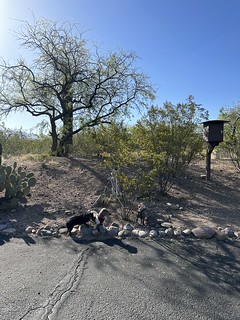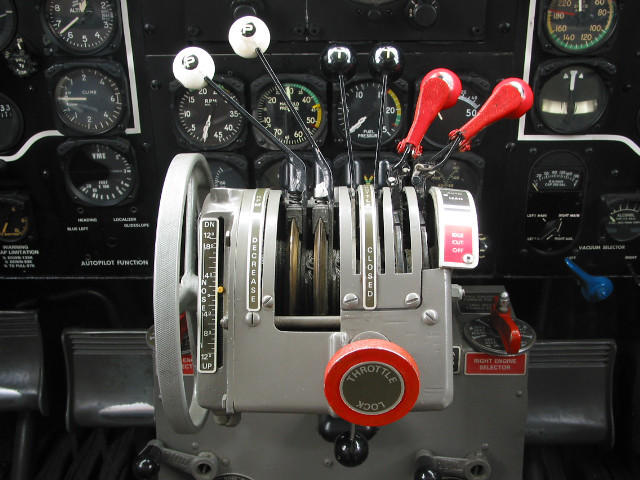
Walking with the dogs yesterday, all four of us alerted on an irregular clicking sound coming from the brush alongside the street. Whatever was making it was hidden in the shiggy. I considered turning back toward home but eventually decided to continue the walk. It didn’t sound like a bird, but it must have been … I’ve never heard a coyote or javelina making sounds like that (but to be honest not a bird either). People hereabouts encounter coyotes and javelina all the time, sometimes with fatal consequences to the dogs they’re walking, so the pups and I try to keep our situational awareness at a high level.
I put up short posts about our experience on Facebook, Instagram, Twitter, and Mastodon, using the word “shiggy” and defining it in attached comments. In my explanation, I credited the term to the Hash House Harriers, who use it to refer to difficult or impassable foliage or terrain that slows runners down, flays their flesh, or gets them dirty and wet. I went on to explain that one of my missions is to popularize great words coined by obscure groups.
This morning I looked up shiggy in the Urban Dictionary. Turns out I was pretty close:
Off-road hashing (running) trail through muck, mud or other wet areas. Term derives from shigella/shigellosis – bacteria causing dysentery occurring most frequently in areas of poor sanitation such as pig sties and back-water swamp lands. Term first used by Brits & Aussies on Hash House Harrier runs (in Asia) in 1940’s.
The hares laid much of the trail through deep shiggy and nearly every hasher had to wash up prior to down-downs. On On!
Also:
Off-trail terrain popular in hashing, typically consisting of brush, brambles, mud, and stream crossings.
I went hashing last weekend and was up to my neck in swampwater and shiggy!
In this post, I also used the term “situational awareness.” That’s one I learned flying fighters, where a lack of situational awareness, or SA, will put you in the mort box toot sweet. I can’t say it’s an aviation term, though: SA applies across many disciplines and is used in many professions. Some day, though, I’ll try to write about aviation terms and phrases in everyday use that people may not realize come from flying. Things like “balls to the wall,” which we all understand to mean a full-press effort, but which comes from aviation and once had a more specific meaning: to push the prop, throttle, and mixture knobs all the way forward for max grunt. To wit:

Speaking of SA, I sensed a wrongness in my horological environment and corrected it. I’d replaced the original leather straps on some of my wristwatches with aftermarket ones I liked better, but going through my discarded and spare watchbands realized some had branded buckles — a Seiko buckle on a strap that originally came with a Seiko watch, for example — so with a watchmaker’s springbar tool I liberated the branded buckles from their original straps and grafted them onto the straps I actually wear. Like this:
It’s not anywhere the level of modifying watches, but it’s something. Each of these buckles now match the watches they’re with, and for some reason that calms me. Sadly, there’s one watch in my collection, a Torgoen GMT, that looks good with either of two straps, the original one and an aftermarket strap. I change straps on that watch often, depending on my mood, and it would be too obsessive even for me to change the buckle every time I switch. So I’ll leave the Torgoen buckle on the Torgoen strap and the unbranded buckle on the other one.
 |
 |

One thought on “SA In the Shiggy”
-
Pingback: GHAD, Jolly Collier, Oldbury – The Endless British Pub Crawl Goes Fourth
Leave a Reply